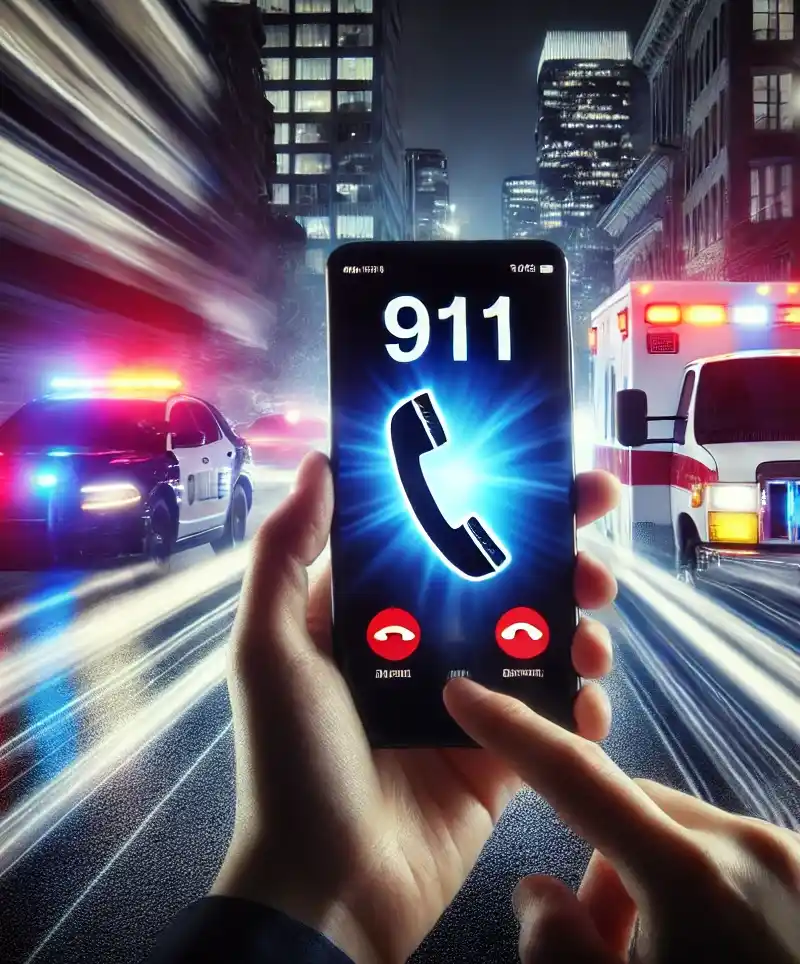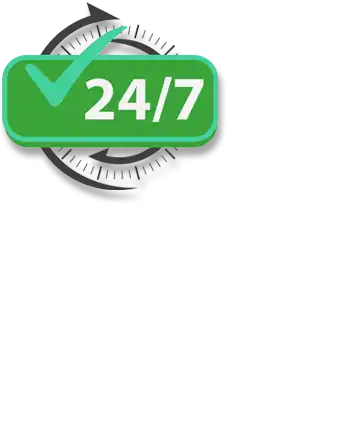Dialing 911 for Life’s Unscripted Moments
When disaster strikes, and chaos ensues, there’s one number you’re grateful to have on speed dial—911. On Emergency Number Day, we celebrate the three digits that bridge the gap between calamity and calm, turning frantic moments into scenes of heroics, resourcefulness, and sometimes oddball scenarios that make dispatchers scratch their heads.
The Birth of 911
The 911 emergency system didn’t just appear out of thin air—though you’d think it was delivered by a superhero cape-wearing technician. The system was created to ensure that people in need could reach emergency services quickly and easily. The idea was sparked in the 1950s, with the first 911 call made on February 16, 1968, in the small town of Haleyville, Alabama. Someone probably dialed in to ask if their leftover meatloaf was still good.
Before 911, things were complicated. You’d need to know the number for the local fire department, the police, or the nearest pizza joint if your emergency was less about saving lives and more about saving dinner. But with 911, it was one number for all emergencies, big or small (and yes, people sometimes confuse the two).
How the System Works
Today, when you dial 911, the clock starts ticking. Operators are trained to stay cool, calm, and collected, no matter what chaos erupts on the other end of the line. They’re the first responders’ first responders, using technology to determine your location and ensure that help is on the way.
If you’ve ever wondered, “How do they know where I am?” you can thank Enhanced 911 (E911). Introduced in the 1990s, this feature allowed operators to pinpoint your location with greater accuracy—though if you call them because your cat won’t get off your lap, they might still struggle to understand exactly how they can help.
The Heroes Behind the Line
911 dispatchers are the unsung heroes of the emergency world. They’re trained to handle everything from heart attacks to house fires, but they also handle the occasional bizarre call. Imagine telling someone that no, their chicken nugget dilemma is not an emergency, or explaining to a disgruntled homeowner that raccoons rummaging through trash cans at night do not constitute a break-in.
Humor aside, dispatchers often perform life-saving work. They talk people through CPR, help deliver babies, and provide instructions to keep people safe until professionals arrive. It’s like having a doctor, therapist, and logistics expert all rolled into one, who just happens to be on the other end of your phone.
Oddball 911 Calls
You’d think 911 would only be used in real emergencies—after all, it’s not a chat line or a radio request show. But there are always those who stretch the definition of “emergency.” Some notable examples include:
- A woman who called to ask if it was illegal to drive her car barefoot.
- A man who needed help deciding which number to dial for a pizza.
- A frantic homeowner calling because they couldn’t figure out their remote control.
- Someone asking for assistance to get out of a locked bathroom when there was a working window available.
- A caller reporting that their ice cream melted too fast and they needed advice on how to refreeze it.
- A person dialing 911 because they spotted a suspicious-looking cloud and were convinced it was "up to something."
While these calls can be humorous, they also highlight the importance of keeping the lines clear for actual emergencies. Remember, the next time you can't decide between pineapple or pepperoni on your pizza, that’s a decision for you—not 911.
From Landlines to Cell Towers
The 911 system has grown with the times. What started as a lifeline for landline users has now evolved to keep up with our fast-paced, mobile world. Today, most 911 calls come from cell phones, which means the system has had to adapt to ensure that emergency services can locate you—even if you’re wandering aimlessly in the woods after thinking you could tackle a nature hike with no map and a granola bar.
In recent years, text-to-911 services have been introduced, allowing people to reach emergency services when a phone call isn’t possible. So if you’re stuck in a situation where calling isn’t safe (or you’re just too socially awkward to talk), help is still just a text away.
Keep the Line Open
On Emergency Number Day, we salute the 911 operators, dispatchers, and emergency responders who work tirelessly behind the scenes. They’re the calm in the storm, the voice of reason in chaos, and sometimes the patient ear when someone just needs to know what time it is (yes, people have called 911 for that).
But let’s remember the real takeaway here: 911 is for emergencies. If you’re not sure whether to call, ask yourself, “Is this truly an emergency?” Emergencies typically involve situations where life, safety, or property is immediately threatened. For instance, medical emergencies, active fires, or crimes in progress warrant immediate attention. If your question can be answered by a quick Google search or solved with some duct tape and patience, it’s best to leave the lines open for those in dire need.
Misusing 911 doesn’t just clog up the system; it could delay help for someone experiencing a real crisis. Imagine a dispatcher talking someone through CPR while another line lights up with someone asking how to reset their Wi-Fi router. Those minutes matter, and keeping the line open can make all the difference.
So, the next time you’re tempted to call 911 for something trivial, remember that those three digits are a lifeline. Be mindful, be responsible, and let’s keep the system working efficiently for everyone.
Ways to Celebrate Emergency Number Day
Emergency Number Day isn’t just about recognizing the importance of 911; it’s also a great opportunity to learn, appreciate, and spread awareness about the system and the people behind it. Whether you’re honoring the dispatchers who keep their cool under pressure or ensuring you’re better prepared for emergencies, there are plenty of meaningful ways to participate.
- Thank a dispatcher: If you’ve ever had to call 911, today’s the perfect day to show some appreciation. Dispatchers are often the unseen heroes of the emergency services team, and a little gratitude can go a long way.
- Learn CPR: It’s always good to be prepared for an emergency. Many 911 dispatchers give CPR instructions over the phone, but having the knowledge beforehand can save time—and lives.
- Teach kids how to use 911 responsibly: Make sure the younger generation understands when (and when not) to call 911. Trust us, the operators don’t need to know about how your little brother stole your crayon.
Emergency Number Day is a time to reflect on the system that has helped save countless lives and maybe, just maybe, put a smile on a dispatcher’s face when someone’s weird day becomes their new story to tell at parties. So here’s to 911, the lifeline we hope you never need but are eternally grateful for when you do.
Please Share our Content












 "Sláinte!" is a traditional Irish expression used as a toast, equivalent to "Cheers!" in English.
"Sláinte!" is a traditional Irish expression used as a toast, equivalent to "Cheers!" in English.